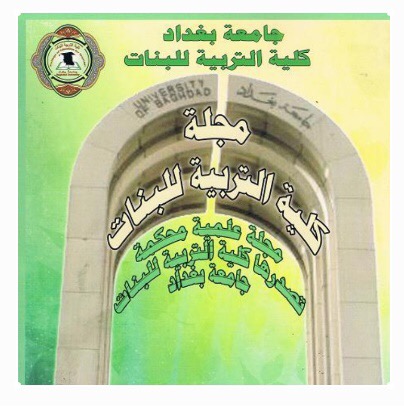THE CONCEPT OF LOVE AND MARRIAGE IN ZORA NEALE HURSTON'S THEIR EYES WERE WATCHING GOD
Abstract
Zora Neale Hurston's (1891-1960) is an outstanding African American
novelist, playwright, autobiographer and essayists. Her work is considered as an
important part of the African American and Harlem Literature.**** It represents a
milestone and a keystone in the African-American literary canon because it breaks
from the style of the previous works and makes a beginning of a new style. Hurston
shifts from the black works that stick to racial themes and sheds the light on new
aspects and themes in blacks' life especially on feminist themes. Her exceptional fame
culminates in her novel Their Eyes Were Watching God (1937). 1
Their Eyes Were Watching God examines with a great deal of artistry
the struggle of a black woman named Janie Crawford to escape the fetters of the
traditional concept about love and marriage and the narrow social restrictions of her
class and sex. She neglects others' judgment on her and is brave enough to strive for
her dream.2
The paper concentrates on this novel to show the concept of love and marriage
through the story of Janie's Crawford, the novel's protagonist. In Janie's plight
towards liberty and recognition, love and happiness, Hurston reflects the colored
women's thrives and experiences in the American black society. Janie, who has the
concept that marriage must involve love and happiness, goes for a search of
unconditional and fulfilling love which she finally finds with her third husband Tea
Cake, but only after she has passed through the wasteland of being a possession
before entering the pear tree garden of her actualized dreams of love and happiness.

Published
Issue
Section
License
![]()
All articles published in Journal of College of Education for Women are licensed under a Creative Commons Attribution 4.0 International License.










